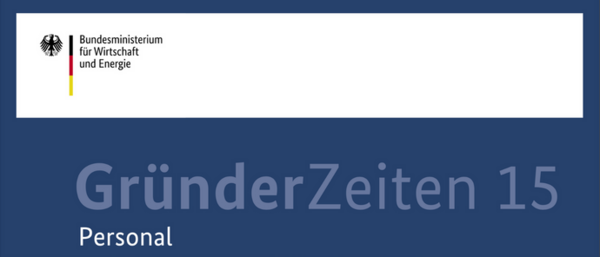Business growth
Growth as an opportunity and a permanent challenge
You’ve survived the first few months (or even years), and now you want to expand? Staff development and your staff policy are, of course, very decisive factors for the growth of your business. Don't skimp on good staff. Invest in the satisfaction and competence of your employees. Your company has to run smoothly even when you're not there yourself. Also, pay attention to changing framework conditions. In the same way that markets and customer needs change in dynamic competition, you also have to adapt your business model. Perhaps there is further market potential and possibilities that you did not have in mind in the start-up phase. You may be able to use more efficient distribution channels. What other market trends could you pick up on? How sustainable are you already?
Crises require change
The Corona period has taught us how important it is to respond to times of crisis or other developments and bottlenecks. Many companies have switched their offer to online formats. Restaurants have developed a catering service. Many people closed their old businesses and created entirely new products. Responding flexibly to new situations is, of course, part of your professional profile as a self-employed individual. It is important to exchange ideas with other businesspeople or to seek professional management advice. Some funded projects offer workshops, advice or coaching on reorientating self-employment. And it's worth it to look for workshops at business development agencies or chambers.
Even if you don't have any specific questions or don’t need help, you should occasionally seek a conversation with your business development agency or the relevant chamber. Imagine yourself as an expanding self-employed person. Questions that didn’t come up before often arise during such a conversation. Look for suitable events. You can also find valuable tips and contacts in networks, committees, associations and other communities that want to strengthen their own independence with the help of the community. Search specifically for such groups and offers.
Review your pricing policy
When entering the market, many self-employed people set low prices for their products or services to assert themselves against the competition. Low prices are not always the best way to attract many customers. Do you have a quality product or service? Then the prices should reflect that and not be too low. Finally, when prices are low, you have to work more to get the income you need or want. Over time, you will also develop a better sense of your markets: what prices are appropriate? What factors do I use to convince my customers? If the quality is right and you have built up a customer base, you don't have to argue with low prices. You can read up on how to systematically review your pricing policy on the Entrepreneur platform. The Entrepreneur workshop Germany shows you how to calculate your prices.
Employing staff
Before you employ staff, remember that Labour Law comes before all else! Familiarise yourself with your obligations as an employer: What conditions do you have to guarantee your future employees? What can you regulate in the employment contract? What working hours apply, what break times and what leave entitlement do employees have? Offer a good salary. Find out what salary level is appropriate for the position in question. You will find a salary calculator and a comparison of salaries for various positions in the Entrepreneur glossary.
Think carefully about which staff you need, including for the future. Are you looking for assistants, or are you looking for qualified, skilled workers? Let us advise you on this. Find out what funding programmes are available. You can find free help at Arbeitgeberservice der Bundesagentur für Arbeit (Employer service of the Federal Employment Agency). Another possibility is to employ trainees, as many companies train their skilled workers themselves. Of course, this is a longer way as far as time expenditure is concerned, and you still need a skilled person - if you cannot do it yourself – to do the training in your company. But this investment can pay off in the long run.
If you employ staff, it is important to create a good working environment since good skilled workers are in demand these days. A good working environment is not only understood to mean the workplace (office, workshop, salesrooms) but also the whole atmosphere. Organise further and advanced training for your employees and ensure a work-life balance, for example, in the form of flexible working time models or the option of part-time work.
Below, we have provided you with an overview of the most important points that you should consider when employing staff:
Working hours
If you have a full (full-time) position, you work around eight hours a day in Germany, up to a maximum of ten hours. You can also arrange fewer hours for a part-time position. Breaks are mandatory during working hours, and employees can compensate for overtime with free time. Normally employees work from Monday to Friday; the weekends and holidays are usually free. In some professions, such as healthcare or catering, working on Sundays and public holidays is permitted.
Salary and minimum wage
Unless you are subject to the collective bargaining provisions under labour law, you can negotiate wages and salaries freely. However, you may not pay below the statutory minimum wage. The minimum wage also applies to mini-jobs, seasonal workers and internships. Information on the minimum wage and the current amount can be found on the website of the Federal Ministry of Labour.
Company social benefits
In addition to wages, there are company social benefits that you have to pay your employees, including: pension insurance, unemployment insurance, health insurance, nursing care insurance, accident insurance, continued payment of wages in the event of illness, maternity leave, payment of public holidays and works council costs. In addition to these statutory company social benefits, there are also collectively agreed and voluntary social benefits.
Illness
If employees are unable to work due to illness, they will receive 100 per cent of the wage to which they are entitled (= continued payment of wages) from the employer for a period of up to six weeks. It is important that the employment contract has existed for at least four weeks. If the inability to work lasts longer than six weeks, the health insurance company pays sick pay. However, this is only 70% of gross income and may not exceed 90% of net income.
Termination
Termination must take place in writing in order to be effective. Employees are protected by law from unjustified or arbitrary dismissal. In addition, there are regulations in favour of persons who are particularly worthy of protection, such as pregnant women or the severely disabled. Employees have the right to know the reason for the dismissal.
Occupational health and safety
The Occupational Health and Safety Act and the occupational health and safety regulations issued thereof, such as the video screen ordinance, serve to ensure and improve the safety and health protection of employees at work through occupational health and safety measures.











